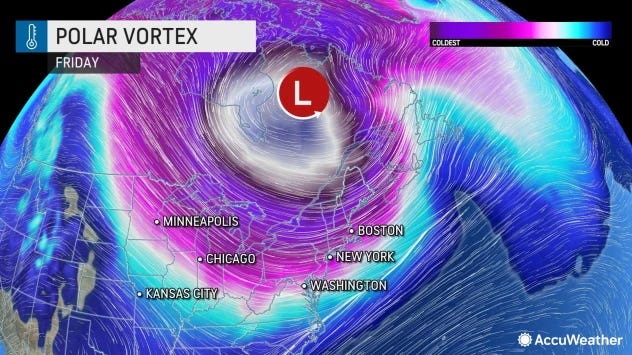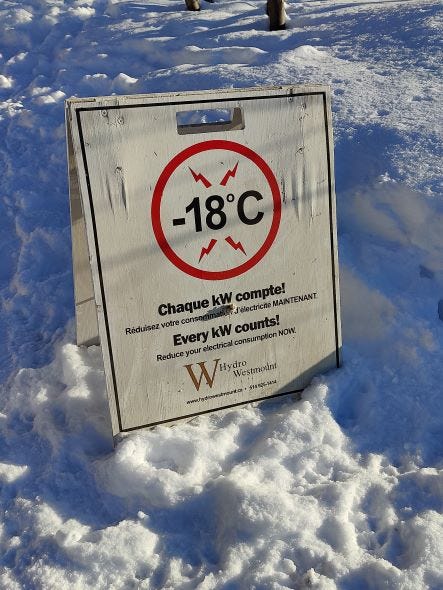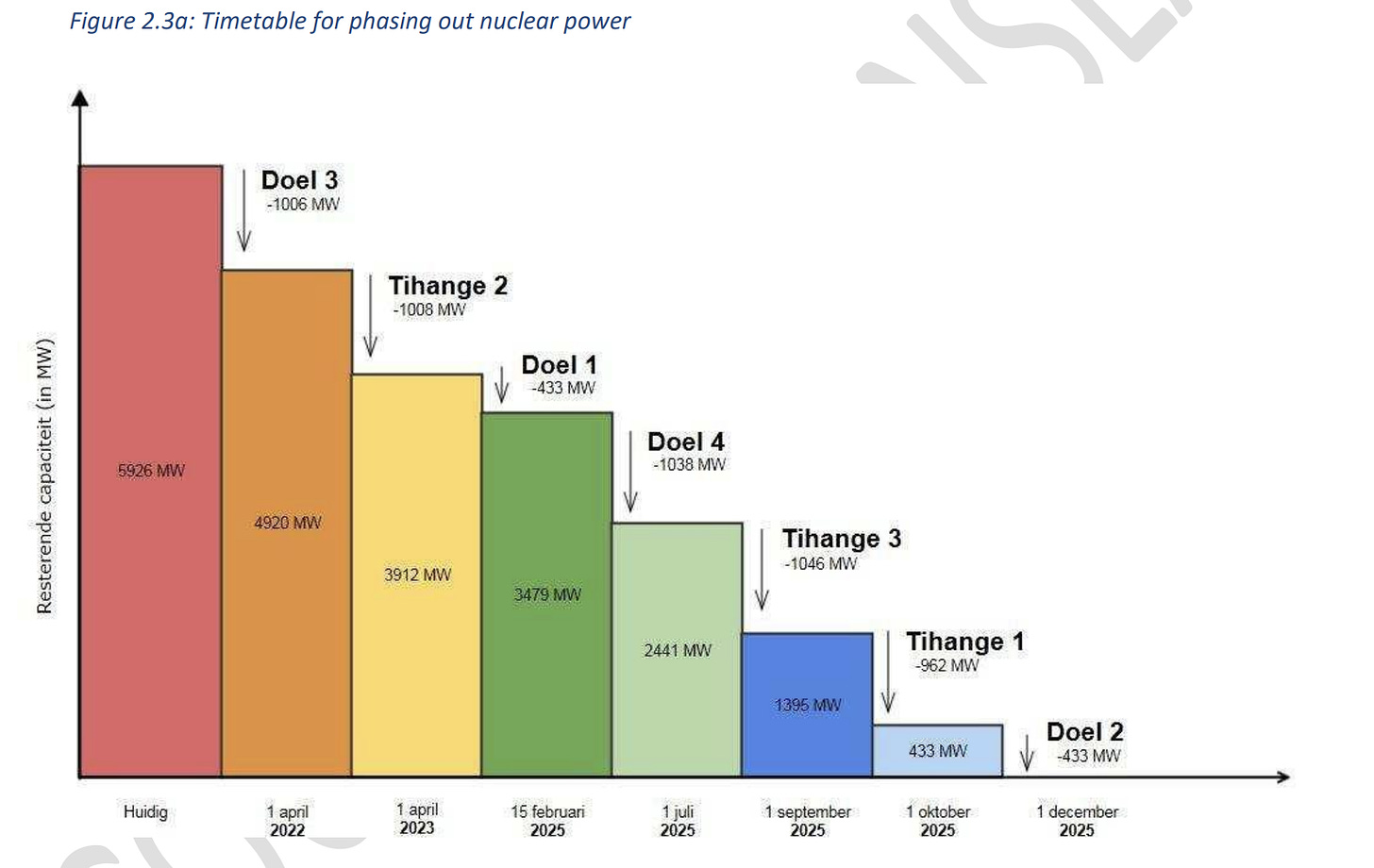A friend in need is a friend indeed, unless of course they are too needy…
The irrational exuberance that has come to characterise the energy transition and the “Race to Net Zero” can be seen in the regular need to fall-back on “importing power from neighbours”. A one point importing electrons was a Plan D or Plan E, adding a layer of security to otherwise robust systems that had enough redundancy built-in.
Increasingly, we see importing from neighbours becoming the “Plan A” as reliable sources of power generation are shut down.
New England, which has quite deservedly had a lot of bad press, is a fine example.
In planning for a carbon-free electric power system in 2050, U.S. states in New England have looked to hydropower imported from Quebec as one source of clean electricity alongside wind and solar and others.
Easy to say, harder to do.
Implementation has been hit by multiple rejections of the power-lines needed to bring electrons from Quebec. One notable example is the New England Clean Energy Connect (NECEC), a proposed transmission line that would transmit hydroelectric power from Quebec to Massachusetts. The project faced opposition from environmental groups and local communities, but it was approved by the Massachusetts government in 2020. The problem of course was that the opposition wasn’t in Massachusetts, it was in Maine where residents stood to see the environmental damage and not benefit from the power.
An earlier example is the Northern Pass Transmission project, which aimed to transmit hydroelectric power from Quebec to New Hampshire. However, the project faced opposition and was ultimately rejected by the New Hampshire Site Evaluation Committee in 2018.
Ironically this inability to build the necessary infrastructure may be a good thing; it will spare some blushes. The reality is that Quebec does not have excess hydro-power, or more specifically it does not have excess hydro power when New England would need it - like, for example, this coming weekend.
In case your geography isn’t that great, Quebec is the big, very cold bit, going up from Boston, across the St Lawrence towards the big red spot. And as a shock to hopefully no one reading this post - when it is super cold in Quebec it is also cold in New England (it is predicted to hit -32C (-26F) overnight at the weekend). Equally un-shocking is the fact that electricity demand peaks during these conditions.
Indeed in anticipation of this, our local electricity company (I still love that electricity companies here are called “Hydro”…) is reminding people that they should reduce non-essential consumption when it starts getting a bit nippy.
Meanwhile, the Premier of Quebec, François Legault, said just this week that Quebec needs to build 5 or 6 new hydro-electric power stations.
“Legault argued there are other issues to consider in 2023, which he has tagged a year focused on the electrification of Quebec. For one thing, Quebec is shifting from years of power surpluses to shortfalls. Hydro-Québec’s 2022-2026 strategic plan estimates Quebec will not have enough capacity to meet demand starting in 2027.”
No doubt you see the inherent dichotomy of this situation. Quebec is forecasting a shortfall of power in 2022-2026, yet Hydro-Quebec was party to the NECEC power-line project. What gives?
From what I have been told, these two positions are compatible - but… (yes, there is a “but”), the supply of electricity would be on an “as-available” basis. So a nice cloudy and windless early summer day and the line would be humming (assuming anyone in NE actually needed any extra electricity then).
In the middle of a polar vortex in February?
Well, no. Just no.
Cold weather is the where the limit of “love thy neighbour as thyself” meets reality.
Energy Security is National Security
To take just one example, Belgium is in the process of shutting down its low-carbon nuclear fleet.
Its plan? Lots of buzz words like “efficiency” and “smart grids”, but crucially a drive to go well above the EU’s 15% recommend level for interconnector capacity. Five investment packages which include both the strengthening of existing interconnections with France and the Netherlands and the reinforcement of existing 380 kV internal corridors. As well as:
Brabo project: strengthening the interconnection with the Netherlands;
2nd HVDC link with the UK;
2nd HVDC link with Germany.
Astute readers will recognize a familiar theme here - pillar three of the Fatal Trifecta: the naïve reliance on neighbours.
Meredith Angwin defined the “Fatal Trifecta” in her book Shorting the Grid
too much reliance on weather dependent sources of electricity,
too much dependence on just-in-time gas and
too much dependence on the kindness of neighbours.
Belgium has been a net exporter of electricity to the UK, often whilst importing from France. France has its own issues with its aging fleet of reactors and the incomprehensible insistence that it meet “renewables” quotas (including being fined E500 million recently, despite having one of the lowest carbon grids in the world).
Germany? You mean that Germany, the one that has the same weather as Belgium? The one that is burning lignite in winter doldrums and signing long term gas contracts with Qatar (in all likelihood getting Iranian gas into the bargain)?
The UK, well yes, no doubt on windy, sunny spring days it could export electricity - but again, this would be exactly when it wouldn’t be needed.
A Swedish MP said the quiet part out loud last year - to paraphrase them: “why should we make our domestic electricity bills more expensive simply because Germanys has shut its nuclear power plants?”
Sweden said it, Norway has lived it - with electricity prices in southern Norway hitting 10x for local consumers all the while exporting to UK and Europe. That’s how markets are supposed to work, but when that is draining your hydro reservoirs you imperil your energy security. Unsurprisingly, Norway is reconsidering its market based approach.
The Ties that Bind
his winter (2022-23) has been mercifully mild in Europe and the stresses seen in the interconnector systems have been limited. However, political solidarity will be tested, probably to breaking point, in the event of a prolonged cold spell. Maybe not this year, but with the current policies, its just a matter of time. When everybody relies on everyone else, eventually everyone has a problem.
Interconnectors will play an increasingly important role in the electricity systems of tomorrow, especially in regions that don’t have access to a diversity of natural resources. But - without a clear understanding of the limitations of this arrangement, as well as its strengths, it is an open invitation to grid fragility. And, when it comes to energy security, that is something that no responsible government (or its citizens) can afford.
Relying on your neighbours is not so much “the ties that bind”, but more “the ties that get you in a bind”. Your grid failing because of someone else’s’ energy policy is the worst kind of bind.







Lucky Europe has been during this winter, but we have had some many near misses and high potential incidents. We are getting closer to have causalities.